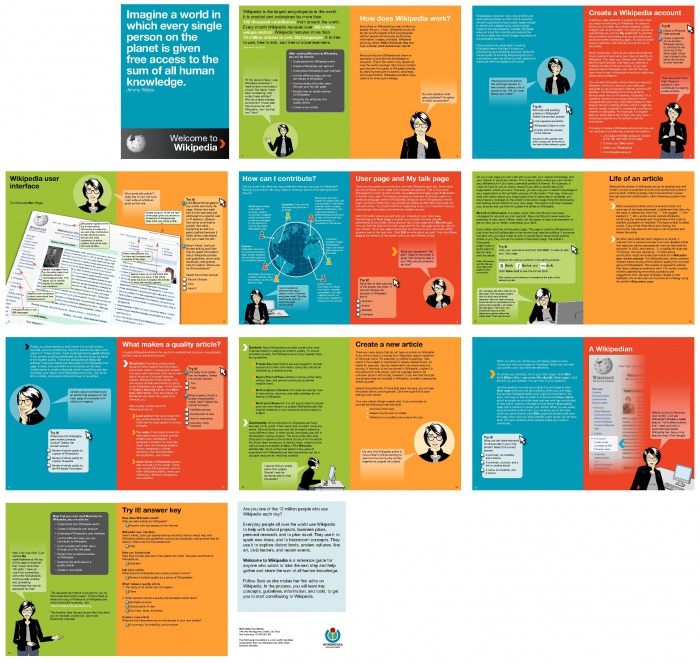Success Stories 2011: Difference between revisions
(Wrasse fishing with soft lures in an Anglo/Japanese style) |
|||
| Line 29: | Line 29: | ||
This first issue of '''[http://issuu.com/jerseybassguides/docs/hrfw?mode=embed&layout=http%3A%2F%2Fskin.issuu.com%2Fv%2Faquarium%2Flayout.xml&showFlipBtn=true The Rockfish Files]''' was a collaborated effort, but edited and created soley with open source software. | This first issue of '''[http://issuu.com/jerseybassguides/docs/hrfw?mode=embed&layout=http%3A%2F%2Fskin.issuu.com%2Fv%2Faquarium%2Flayout.xml&showFlipBtn=true The Rockfish Files]''' was a collaborated effort, but edited and created soley with open source software. | ||
Scribus v1.3.9 was used, and is being used in production of issue #2 to be released in march 2011. | |||
A 60 plus page effort to show the world that British lure fishing can be more than just bass orientated. This document recieved over 5000 unique reads in the first 14 days of it's release. | |||
Revision as of 11:11, 22 January 2011
- Success Stories 2023
- Success Stories 2020
- Success Stories 2017
- Success Stories 2016
- Success Stories 2015
- Success Stories 2014
- Success Stories 2013
- Success Stories 2012
- Success Stories 2011
- Success Stories 2010
- Success Stories 2009
- Success Stories 2008
- Success Stories 2007
- Success Stories 2006
- Success Stories 2005-2004-2003
Introduction
Anyone is invited to describe her/his experience with successfully using Scribus in her/his projects. Please note: to report any unusual reasons you use Scribus join the ongoing discussion Stupid reasons we use Scribus. There is also a special page for placing links to your work: Made with Scribus. If you want to recommend a Scribus and/or PDF friendly print shop, please use Scribus Friendly Print Shops.
2011
Wikipedia Bookshelf Project
Reporter: Frédéric Schütz
Date: January 2011
The Wikipedia Bookshelf Project is creating a core set of public outreach materials designed to help new contributors understand the specific culture of Wikipedia, the free, online encyclopedia that anyone can edit. The materials aim to increase new contributor awareness and interest, foster excitement about contributing to Wikipedia, and provide key training tools. The materials are being developed in English; however, they are to be designed for easy translation, localization, and customization by volunteers, local chapters, and educational institutions such as schools and universities. Bookshelf materials are being developed by the project team from the Wikimedia Foundation (the Foundation that oversees the development of Wikipedia), community volunteers, and production experts.
The combination of these requirements naturally led the project team to choose Scribus to create these materials. Scribus fits perfectly with the goals of the Wikimedia Foundation, and allows anyone to easily access the tools needed to contribute to the project. The resulting materials are also published under a free license (Creative Commons Attribution-Share Alike, except for the Wikipedia and Wikimedia logos).
The material produced so far can be found at http://outreach.wikimedia.org/wiki/Bookshelf (note that the last two documents in the list of printed material were not created with Scribus; in particular, the project is currently looking for a volunteer who could convert the document Video for Wikipedia and the Open Web: A Guide to Best Practices for Cultural and Educational Institutions, originally created using Adobe InDesign, in Scribus format).
Some of the Scribus files are already available at http://outreach.wikimedia.org/wiki/Localization_guidelines_(Bookshelf), in particular for the Welcome to Wikipedia booklet (PDF, ZIP files with Scribus source).
The Rockfish Files
Reporter: Keith White.
Date: January 2011
This first issue of The Rockfish Files was a collaborated effort, but edited and created soley with open source software. Scribus v1.3.9 was used, and is being used in production of issue #2 to be released in march 2011.
A 60 plus page effort to show the world that British lure fishing can be more than just bass orientated. This document recieved over 5000 unique reads in the first 14 days of it's release.
